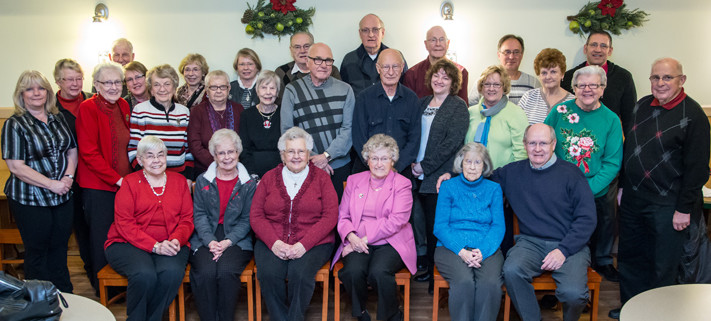Nearly 50-year-old ministry looking for new ways to serve
Nearly 50-year-old ministry looking for new ways to serve the visually impaired
It was 1969. Richard Nixon was president. The median household income was $8,500. Elvis Presley, Stevie Wonder, and The Beatles were on the radio. The war was still going on in Vietnam, and Neil Armstrong became the first human to step foot on the moon.
That same year in WELS, there was a push to develop materials for the visually impaired. WELS President Oscar Naumann asked for Luther’s Catechism to be transcribed into Braille, and an appeal for Braillists was sent throughout the synod.
“A close friend and I, as young mothers, felt the need for some mental challenge in our daily routine so decided to give it a try. We began training by correspondence and were certified by the Library of Congress. It was truly a most enjoyable challenge,” says Sue Holzhueter, a WELS volunteer who has transcribed Braille for the past 47 years.
That transcription work was the start of WELS’ Mission for the Visually Impaired (MVI), which serves people who are unable to read normal print. Manned by volunteers, MVI produces devotional and other materials in Braille, large print, and cassette tape, which are then distributed free to people throughout the world.
“Meditations and Forward in Christ on cassette had always been the most requested of our items,” says Cathie Humann, general manager for MVI. She says although the number of requests for cassette tapes has decreased over the past decade because of changes in technology, the production of Braille materials has nearly doubled—and those same changes in technology are making it easier to both produce and consume the materials.
“We recently received a letter from a woman who stopped receiving devotional materials on cassette because her tape player broke, but she is now listening to the daily devotions on the WELS Web site podcast channel www.wels.net/news-media/podcasts,” says Humann. “She made that effort because those devotions were that important to her. That letter made my day because she is using another means to get that message.”
The MVI is hoping for more success stories like that. In fact, James Behringer, director of WELS’ Commission on Special Ministries, has assembled a group of volunteers who help with technological projects, such as making sure the newly redesigned WELS website is accessible for visually impaired people who use Internet screen readers. “Blind people are becoming more independent now; they can get most things on the Internet,” says Behringer. “The group of volunteers I regularly consult with is helping us get into the 21st century—but at the same time, we still need experts in Braille.”
Mary Price, a Braillist who has served for the past 45 years, says even though the technology has changed, the need for the gospel hasn’t. “I pray that this work at the MVI will continue,” she says. “It may take forms other than Braille and tapes, but it should continue. When I began transcribing 45 years ago, there was always someone telling us of the new advances that would make our work obsolete. That prediction may come true, but there will always be those who need our service, and God expects us to serve them by telling them the story of salvation through Jesus Christ our Lord.”
To learn more about this ministry or browse the catalog of resources available through MVI, visit www.wels.net/visually-impaired.
Author:
Volume 102, Number 9
Issue: September 2015
Copyrighted by WELS Forward in Christ © 2021
Forward in Christ grants permission for any original article (not a reprint) to be printed for use in a WELS church, school, or organization, provided that it is distributed free and indicate Forward in Christ as the source. Images may not be reproduced except in the context of its article. Contact us



